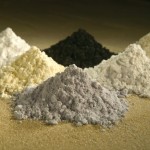Heat-related damage to natural resources, such as forests and biodiversity, can have significant economic implications. Here's a simple explanation:
Table of contents [Show]
Impact on Timber and Forest Products
Heat waves can cause damage to forests, leading to the loss of trees and vegetation. When there is a decrease in the supply of timber, it can drive up prices, making it more expensive for industries that rely on wood, such as construction, furniture, and paper production.
Reduced Ecosystem Services
Forests and biodiversity provide important ecosystem services that benefit human well-being and the economy. These services include carbon sequestration, water regulation, soil conservation, and pollination. When heat-related damages occur, the ability of forests and biodiversity to provide these services may be compromised. This can have indirect economic impacts, such as increased costs for carbon offsetting, water management, and crop pollination.
Tourism and Recreation Decline
Forests and biodiversity attract tourists who enjoy activities like hiking, wildlife observation, and eco-tourism. When these natural areas are damaged or degraded, it can reduce the appeal for tourists, leading to a decline in tourism revenue for local communities and businesses.
Agricultural Losses
Changes in precipitation patterns and temperature can affect crop yields and livestock health. This can lead to reduced agricultural output, lower incomes for farmers, and potentially higher food prices for consumers.
Impact on Biodiversity and Genetic Resources
Biodiversity loss due to heat-related damages can have economic implications, especially for industries that rely on genetic resources. Pharmaceutical, biotechnology, and agricultural sectors often depend on the unique genetic traits found in natural ecosystems.
Increased Costs for Restoration and Rehabilitation
Heat-related damages to natural resources often require restoration and rehabilitation efforts. This involves replanting trees, restoring habitats, and conserving biodiversity. These activities can be costly, requiring investments of time, resources, and expertise.
Long-Term Economic Impact
Heat-related damages to natural resources can have long-term economic impacts. Degraded forests and reduced biodiversity can lead to the loss of ecosystem services that support various economic activities. The effects can ripple through the economy, affecting sectors such as agriculture, tourism, and industries dependent on natural resources.








